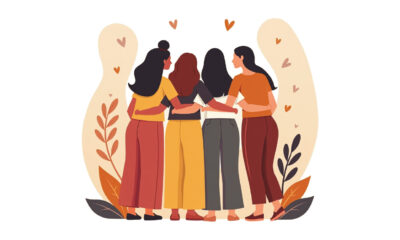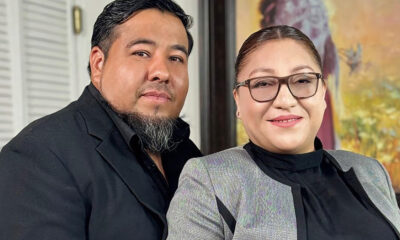Salud
‘Hoy por ti, mañana por mí’
Publicado
3 años antesel
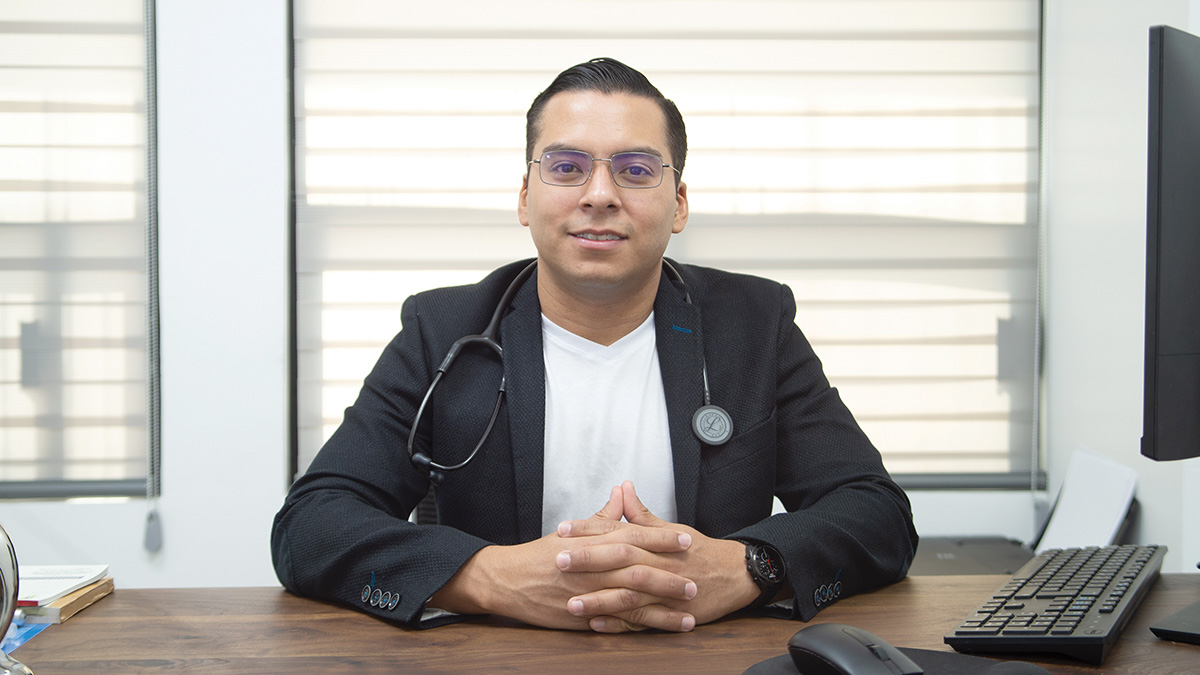
En el Día Mundial del Donante de Sangre, se busca concientizar sobre la necesidad de donar con regularidad el tejido líquido que puede salvar una vida
Muchas veces en redes sociales hemos visto publicaciones o solicitudes de donadores de sangre, hombres y mujeres sanos que ayuden en el tratamiento de otras personas que pasan por alguna afectación de salud o sobreviven a un trauma físico.
Sin embargo, pese a ser requerida diariamente para salvar vidas, la donación de sangre no es una práctica común para los habitantes de Ciudad Juárez, ni de ninguna ciudad de Latinoamericana, por lo que el próximo 14 de junio se intenta concientizar sobre el tema.
El Día Mundial del Donante de Sangre, fue instituido por la Organización Mundial de la Salud (OMS) con el objetivo de agradecer la contribución voluntaria y desinteresada del tejido, además de que con esta conmemoración se busca concientizar sobre la necesidad de donar con regularidad para garantizar la calidad, seguridad y disponibilidad de la sangre y otros productos como el plasma o las plaquetas.
Sobre el tema habla para Visionarias el hematólogo Bosco McNally, experto en esta especialidad, así como en el área de trasplante de medula ósea.
La importancia de donar
Aunque parezca trillado, “cuando estás donando sangre, estás donando una vida”, pues una transfusión ayuda al paciente a ganar tiempo en lo que el médico logra remitir o hasta curar la enfermedad.
“La donación altruista es casi inexistente en muchas partes de Latinoamérica, pero es la más eficiente, es decir, el donador que es más confiable es el donador que va voluntariamente a dar su sangre”, asegura McNally, quien utiliza el tejido, sobre todo, en personas con leucemia.
Quién sí
Sobre los donantes, el médico de origen nicaragüense comenta que todos son aptos para donar, siempre y cuando no se padezca alguna enfermedad infectocontagiosa crónica o hayan padecido alguna infección bacteriana en las últimas dos semanas.
Incluso, desmintiendo tabúes, asegura que personas con tatuajes, que se lo hayan hecho un año atrás pueden ser perfectos donadores, lo cual pueden hacer cada 60 días, y siete en el caso de las plaquetas,
Sólo hay que acudir al banco de sangre con ayuno de 8 horas, así como el mismo lapso de sueño, y sin haber consumido drogas o alcohol recientemente.
“Hoy por ti, mañana por mí… la sangre se repone”, asegura.
Trayectoria médica
El doctor Bosco Martín McNally Guillen es un especialista en medicina interna con especialidad en hematología y alta especialidad en trasplante de medula ósea, quien realizó la primera parte de su carrera en Nicaragua, su país natal, y donde se especializó en medicina interna.
Posteriormente, buscó dónde estaban los mejores institutos latinoamericanos para el estudio de la hematología, y viendo el ejemplo de sus maestros, fue que decidió venir a México, a la Universidad Autónoma de México (UNAM).
Luego, en el Instituto Nacional de Cancerología, hizo la alta especialidad en medula ósea y finalmente se integró a la Asociación Mexicana para el Estudio de la Hematología.
Su otro gran proyecto
Desde hace tiempo, el hematólogo, junto con el Centro Médico de Especialidades de esta ciudad, trabajan en la conformación de un área de trasplante de medula ósea, para lo cual ya sólo necesitan la licencia de la Comisión Federal para la Protección contra Riesgos Sanitarios (Cofepris).
Este tipo de trasplantes nos cuenta, beneficia a pacientes hematológicos o con cáncer, y hasta a pacientes con esclerosis múltiple, incluso se hacen investigaciones con pacientes de Diabetes I, a quienes podría ayudar en el combate de la enfermedad.
McNally asegura que un trasplante de medula ósea tiene dos objetivos, “tratar de curar la enfermedad junto con una dosis alta de quimioterapia y darle un nuevo sistema inmunológico al paciente para que pueda hacerle frente a su enfermedad”, para lo cual se requiere de un equipo especializado, pues “no cualquiera lo puede hacer”.
Así que, si tienes la oportunidad, aunque no sea una emergencia familiar o la de algún amigo, acércate a donar, salva una vida y por el ejemplo en tu comunidad.
Dónde encontrarlo
Consultorio 412, cuarto piso del Centro Médico de Especialidades
Teléfono: 656-757-9301
Facebook: Dr. Bosco Martín McNally Guillen-Hematologo
Today for you, tomorrow for me
World Blood Donor Day seeks to raise awareness of the need to donate the liquid tissue that can save a life regularly
Many times in social networks, we have seen publications or requests for blood donors, healthy men and women, to help treat other people going through some health condition or surviving a physical trauma.
However, despite being required daily to save lives, blood donation is not a common practice for Ciudad Juarez or any city in Latin America. Next, June 14 is intended to raise awareness of the issue.
World Blood Donor Day was instituted by the World Health Organization (WHO) to thank tissue’s voluntary and selfless contribution. In addition, this commemoration seeks to raise awareness about the need to donate regularly to ensure the quality, safety and availability of blood and other products such as plasma or platelets.
Hematologist Bosco McNally, an expert in this specialty and the area of bone marrow transplantation, talks to Visionarias about this subject.
The importance of donating
Although it may seem trite, “when you are donating blood, you are donating a life,” since a transfusion helps the patient gain time while the doctor manages to cure the disease.
“Altruistic donation is almost non-existent in many parts of Latin America, but it is the most efficient, that is to say, the most reliable donor is the donor who goes voluntarily to give his blood,” assures McNally, who uses the tissue, above all, in people with leukemia.
Who does
Regarding donors, the Nicaraguan-born physician comments that everyone is apt to donate as long as they do not suffer from any chronic infectious disease or have had any bacterial infection in the last two weeks.
Even denying taboos, he assures that people with tattoos, who have had them done a year ago, can be perfect donors, which they can do every 60 days, and seven in the case of platelets,
They only have to go to the blood bank with an 8-hour fasting period and the same amount of sleep, and without having consumed drugs or alcohol recently.
“Today for you, tomorrow for me… the blood is replenished,” he assures.
Medical trajectory
Dr. Bosco Martín McNally Guillen is a specialist in internal medicine specializing in hematology and a high thing in bone marrow transplantation. He spent the first part of his career in Nicaragua, his native country, specializing in internal medicine.
Afterward, he looked for the best Latin American institutes to study hematology, and seeing the example of his teachers, he decided to come to Mexico to the Autonomous University of Mexico (UNAM).
Later, at the National Institute of Cancerology, he became a bone marrow specialist and finally joined the Mexican Association for the Study of Hematology.
His other great project
For some time now, the hematologist, together with the Medical Center of Specialties of this city, has been working on the conformation of a bone marrow transplant area. They only need a license from the Federal Commission for the Protection against Sanitary Risks (Cofepris).
This type of transplant, he tells us, benefits hematological or cancer patients and even patients with multiple sclerosis, and research is even being carried out with Diabetes I patients, who could be helped in the fight against the disease.
McNally assures that a bone marrow transplant has two objectives, “to try to cure the disease together with a high dose of chemotherapy and to give the patient a new immune system so that he can face his disease,” for which a specialized team is required, since “not just anyone can do it.”
So, if you have the opportunity, even if it is not a family emergency or that of a friend, come and donate, save a life and set an example in your community.
Where to find him
Office 412, fourth floor of the Specialties Medical Center
Phone: 656-757-9301
Facebook: Dr. Bosco Martin McNally Guillen-Hematologist
Salud
La prioridad de cuidar nuestro cuerpo
Publicado
2 semanas antesel
16/10/2025Por
Diana Pitman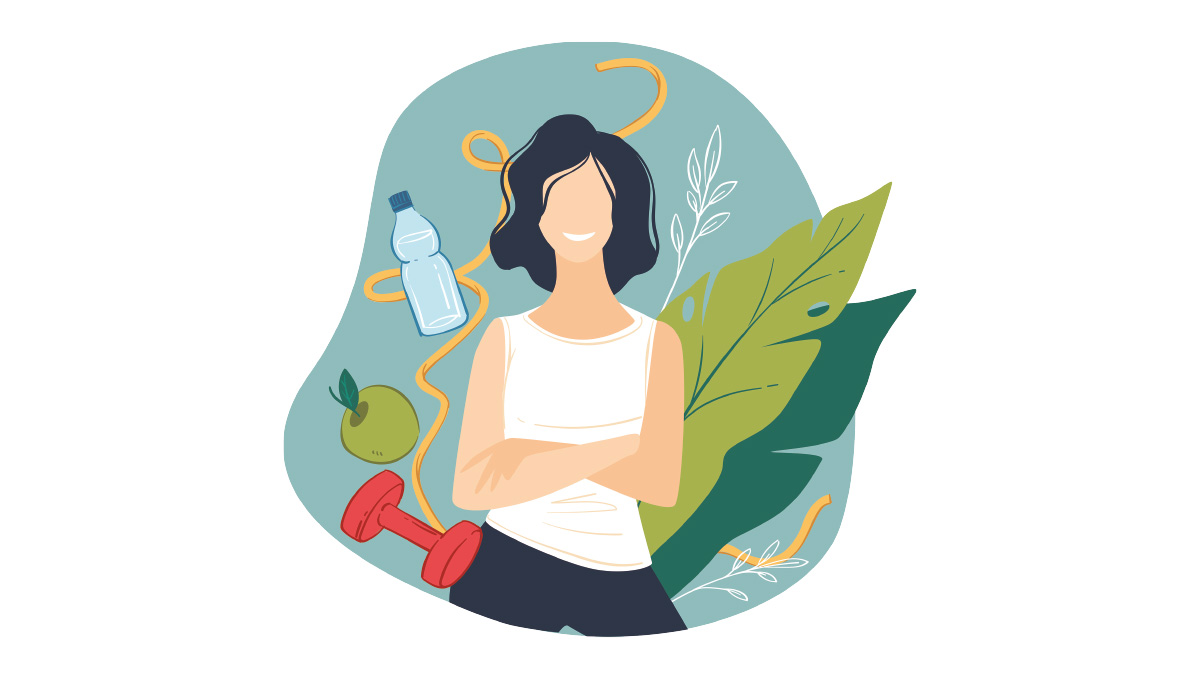
Cuidar nuestro cuerpo no es un lujo ni una opción, es una responsabilidad
En medio de la vida acelerada, con agendas llenas y responsabilidades que parecen no terminar, el cuidado del cuerpo suele quedar en segundo plano. Entre comidas rápidas, falta de ejercicio y el cansancio acumulado, olvidamos que nuestro cuerpo es el vehículo que nos permite avanzar en cada área de nuestra vida. He aprendido por experiencia que la prevención debería ser parte de nuestra cultura; porque si no lo hacemos hoy, mañana podemos pagar un precio muy alto.
Cuidar el cuerpo es más que salud, es visión y legado. Cuando fortalecemos nuestra salud física con una buena alimentación, descanso y ejercicio, también fortalecemos la mente, manteniéndola clara, creativa y enfocada. Un cuerpo sano nos brinda la energía necesaria para avanzar en nuestros sueños con constancia y resistencia, sin rendirnos a la primera dificultad.
Además, al priorizar nuestra salud nos convertimos en ejemplo para otras mujeres, mostrando que el liderazgo integral no solo se habla, se modela en la vida diaria. También es una inversión a largo plazo: lo que hacemos hoy evitará enfermedades y limitaciones en el futuro, permitiéndonos disfrutar plenamente de nuestra misión.
Finalmente, cuidar nuestro cuerpo es también un acto espiritual. Es reconocer que Dios nos lo dio como instrumento para cumplir nuestro propósito, y al mantenerlo sano, lo honramos. Nuestro cuerpo es el puente que conecta lo físico con lo espiritual, y al cuidarlo, nos mantenemos alineadas con el llamado divino.
En conclusión, cuidar el cuerpo no es solo una cuestión de salud personal; es un compromiso con la visión, el liderazgo y el legado que queremos dejar. Porque cuando una mujer cuida de sí misma, también inspira y transforma a quienes la rodean.
Making our body a priority
Taking care of our body is not a luxury or an option, it is a responsibility.
During fast-paced living, packed schedules, and endless responsibilities, caring for our bodies often takes a back seat. Between fast food, lack of exercise, and accumulated fatigue, we forget that our body is the vehicle that allows us to move forward in every area of our lives. From personal experience, I have learned that prevention should be part of our culture; because if we don’t do it today, tomorrow we may pay a very high price.
Caring for the body is more than health—it is vision and legacy. When we strengthen our physical health with good nutrition, rest, and exercise, we also strengthen the mind, keeping it clear, creative, and focused. A healthy body gives us the energy we need to pursue our dreams with consistency and resilience, without giving up at the first obstacle.
Furthermore, when we prioritize our health, we become an example for other women, showing that integral leadership is not only spoken but modeled in everyday life. It is also a long-term investment: what we do today will prevent illnesses and limitations in the future, allowing us to fully enjoy our mission.
Finally, taking care of our body is also a spiritual act. It is recognizing that God gave it to us as an instrument to fulfill our purpose, and by keeping it healthy, we honor Him. Our body is the bridge that connects the physical with the spiritual, and by caring for it, we stay aligned with our divine calling.
In conclusion, caring for the body is not just about personal health; it is a commitment to the vision, leadership, and legacy we want to leave. Because when a woman takes care of herself, she also inspires and transforms those around her.
Salud
Videojuegos: ¿afición divertida o adicción silenciosa?
Publicado
3 meses antesel
01/08/2025Por
Marisol Parra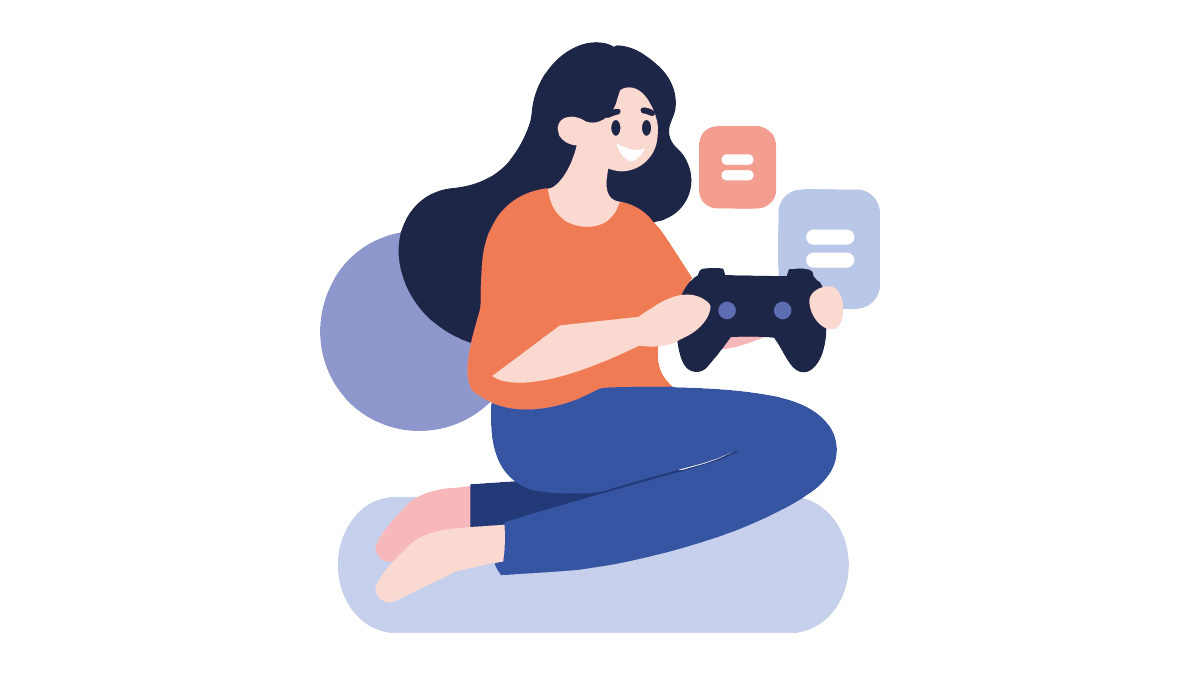
Los videojuegos son una forma popular de entretenimiento, pero su uso excesivo puede afectar la salud física, mental y emocional.
Hoy en día, los videojuegos han pasado de ser un pasatiempo ocasional a ocupar un lugar protagonista en el tiempo libre de niños, adolescentes e incluso adultos. Gracias al desarrollo del mundo virtual y a la enorme variedad de temáticas y estilos, es fácil entender por qué se han convertido en uno de los entretenimientos favoritos, solo por detrás de las redes sociales.
Pero como en todo, el equilibrio es clave. Para algunas personas, jugar puede ser una actividad sana, controlada y hasta enriquecedora. Sin embargo, para otras, puede transformarse en una adicción con consecuencias reales y preocupantes. Detrás de cada juego hay estrategias bien pensadas basadas en neurociencia: recompensas constantes, desafíos superables, sensación de logro inmediato… Todo esto estimula la liberación de dopamina en el cerebro, una sustancia relacionada con el placer. ¿El resultado? Queremos más y más. Y cuando perdemos el control del tiempo o dejamos de hacer cosas importantes por seguir jugando, hablamos de una posible adicción.
Esa compulsión puede hacer que una persona posponga o abandone actividades básicas como estudiar, trabajar, dormir o convivir con su familia. En estos casos, incluso es común experimentar ansiedad o irritabilidad cuando no se puede jugar, lo que indica síntomas de abstinencia.
El abuso prolongado de videojuegos puede afectar diferentes áreas de la vida. Aquí algunos efectos que conviene conocer:
- Salud mental: irritabilidad, ansiedad, depresión, alteraciones del sueño, trastorno por déficit de atención (TDAH), dependencia emocional del juego.
Salud física: vista cansada, dolores musculares por malas posturas, insomnio.
Comportamiento: conductas desafiantes, baja tolerancia a la frustración, respuestas agresivas.
¿Cómo jugar de forma saludable?
Los videojuegos también tienen beneficios: desarrollan la creatividad, el pensamiento lógico y pueden fomentar la conexión social. Lo importante es establecer horarios, respetar rutinas y equilibrar el juego con otras actividades. En el caso de niños y adolescentes, los padres deben supervisar y poner límites claros, La Organización Mundial de la Salud (OMS) reconoce la adicción a los videojuegos como un trastorno mental, por lo que es importante prevenir, observar cambios de conducta y, si es necesario, buscar ayuda profesional.
Los videojuegos pueden disfrutarse, pero con control. El equilibrio es la clave para que sigan siendo un pasatiempo sano y no un problema en casa.
Video Games: Fun Hobby or Silent Addiction?
Video games are a popular form of entertainment, but excessive use can affect physical, mental, and emotional health.
Nowadays, video games have gone from being an occasional pastime to taking center stage in the free time of children, teens, and even adults. Thanks to the development of virtual worlds and a vast variety of themes and styles, it’s easy to understand why they’ve become one of the most popular forms of entertainment — second only to social media.
But as with everything, balance is key. For some, gaming can be a healthy, controlled, and even enriching activity. For others, it can turn into an addiction with serious and concerning consequences.
Behind every game, there are carefully designed strategies based on neuroscience: constant rewards, achievable challenges, and an immediate sense of accomplishment. All of these stimulate the release of dopamine, the brain’s pleasure chemical. The result? We want more and more. And when we lose track of time or begin to neglect important responsibilities just to keep playing, we may be dealing with a potential addiction.
This compulsion can lead someone to delay or abandon basic activities such as studying, working, sleeping, or spending time with family. In more serious cases, it’s common to experience anxiety or irritability when not playing — signs of withdrawal.
How Gaming Affects Daily Life
Prolonged video game abuse can negatively impact various areas of life. Here are some common effects:
Mental health: irritability, anxiety, depression, sleep disturbances, ADHD symptoms, and emotional dependence on gaming.
Physical health: eye strain, muscle pain due to poor posture, and insomnia.
Behavior: defiant behavior, low frustration tolerance, and aggressive reactions.
How to Game in a Healthy Way
Video games can also have positive effects: they can enhance creativity, logical thinking, and even social connection. The key is to set time limits, respect routines, and balance gaming with other activities.
For children and teens, parental supervision and clear boundaries are essential. The World Health Organization (WHO) has recognized gaming disorder as a mental health condition, making prevention and observation of behavioral changes crucial. If needed, seeking professional help is recommended.
Video games can be enjoyed — but with control. Balance is the key to keeping gaming a healthy and fun hobby rather than a problem at home.

Relaciónate sanamente con tus alimentos durante estas vacaciones; valora tanto el placer como la conciencia de elegir opciones saludables
Como ya sabemos, las vacaciones suelen ser sinónimo de descanso, familia, amigos y comida, lo que hace casi imposible pensar en cuidarnos o ser saludables. Pero ¿y si cuidarse también incluyera disfrutar?
Como nutrióloga te diré que comer de forma saludable no es sinónimo de restricciones, de dietas estrictas o de privarte de alimentos que te agradan. Comer saludable es un equilibrio que busca llevar una relación positiva con la comida, consumiendo alimentos con buen aporte nutricional, pero sin dejar de disfrutar de tus comidas favoritas.
Con este artículo más que darte consejos para ser saludable en vacaciones, te invito a modificar la forma en la que te relaciones con tus alimentos.
1. Escucha a tu cuerpo
La gran mayoría durante esta temporada no sigue una dieta o plan alimenticio, así que, aprender a comer con atención y escuchar a tu cuerpo (cuando tiene hambre y cuando está satisfecho) es la mejor solución sea cual sea la comida.
2. Ordena tus alimentos
En tu plato, empieza con las verduras, luego proteínas (pollo, carne, pescado, huevo, leguminosas), seguido de las grasas (aguacate, nueces, almendras) y por último carbohidratos (pan, arroz, pasta, tortillas), esto te ayudara a aumentar la saciedad y mejorar la digestión.
3. Hidrátate bien
Es importante beber 8 vasos de agua al día, pudiendo incluir tes e infusiones (sin azúcar) para evitar la deshidratación.
4. Muévete con libertad
Camina, explora, conoce, pero siempre procura mantenerte activo, esto te ayudará con la digestión mejorando la motilidad intestinal.
5. Elige con intención y no con culpa
Si vas a darte un gusto, hazlo con plena conciencia y disfrútalo sin remordimientos. Ten en cuenta que un alimento fuera de lo saludable no arruina el proceso, pero una mala alimentación prolongada sí.
Recuerda que en estas vacaciones buscamos nutrir nuestro cuerpo, pero también alimentar el alma.
The Art of Taking Care of Yourself Without Missing Out on Enjoyment
Build a healthy relationship with food during the holidays—honor both the pleasure and the awareness of choosing healthy options.
As we all know, vacations are usually synonymous with rest, family, friends, and food—which makes it almost impossible to think about staying healthy or taking care of ourselves. But what if self-care could also include enjoyment?
As a nutritionist, I can tell you that eating healthily doesn’t mean restriction, strict diets, or depriving yourself of foods you enjoy. Healthy eating is about balance—it means developing a positive relationship with food, choosing items with good nutritional value without giving up your favorite meals.
Rather than offering traditional health tips for vacation, this article invites you to rethink your relationship with food.
1. Listen to Your Body
Most people don’t follow a specific diet or meal plan during this time of year. So, the best solution, no matter what you’re eating, is to practice mindful eating—listen to your body, recognize when you’re hungry, and stop when you’re satisfied.
2. Organize Your Meals
When building your plate, start with vegetables, then move to proteins (chicken, meat, fish, eggs, legumes), followed by fats (avocado, nuts, almonds), and finally carbohydrates (bread, rice, pasta, tortillas). This helps increase satiety and improve digestion.
3. Stay Hydrated
It’s important to drink at least 8 glasses of water a day. You can also include teas and infusions (without sugar) to avoid dehydration.
4. Move Freely
Walk, explore, sightsee—but always try to stay active. Movement helps your digestion and improves intestinal motility.
5. Choose Intentionally, Not Out of Guilt
If you’re going to indulge, do it consciously and without remorse. Remember: one “unhealthy” meal won’t ruin your progress, but prolonged unhealthy habits can.
Remember: This vacation, aim to nourish your body—but also feed your soul.














